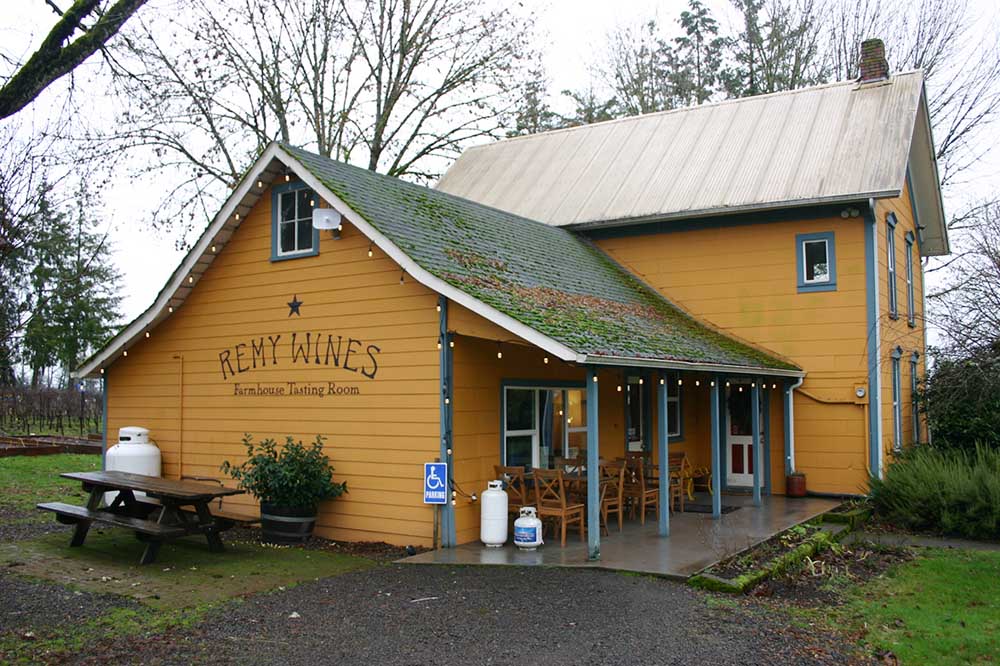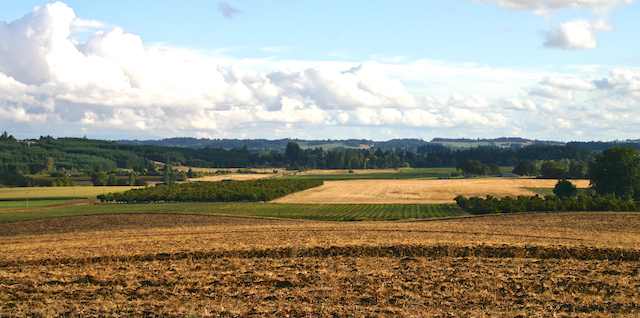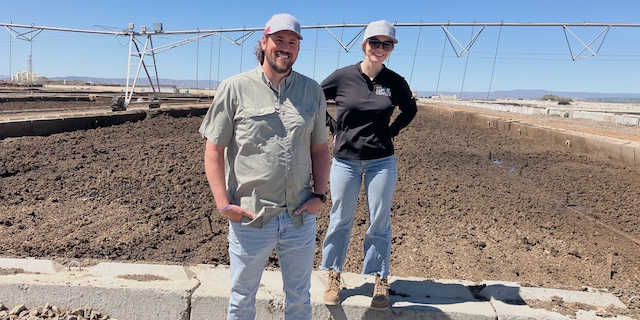Winery promotes adaptive reuse, sustainability
Published 8:30 am Wednesday, January 18, 2023

- Remy Wines is in the Dundee Hills of Oregon’s Willamette Valley, and specializes in northern Italian varietals uniquely suited for the local climate.
McMINNVILLE, Ore. — A spirit of sustainability permeates nearly every nook and cranny of Remy Wines’ new winery, nestled in the Dundee Hills of Oregon’s Willamette Valley.
What used to be an old tractor barn with dirt floors, no walls, no electricity and no running water has been transformed into a fully functioning space where winemaker Remy Drabkin produces northern Italian varietals suited for the local climate.
Drabkin said she approached the project with a focus on adaptive reuse. Interior siding was recycled from other construction jobs; wood from old pallets was used to build the railing leading upstairs; and a new roof was installed with a rainwater collection system, feeding into a nearby fire suppression pond.
“Sustainability is part of my overarching ethos of how I run my company,” Drabkin said. “I was raised to have a moral code when it comes to taking care of the world around me.”
But perhaps the crowning achievement is what lies underfoot.
Partnering with a team of researchers and developers, Drabkin adopted carbon-sequestering concrete inside the 5,000-square-foot winery. She estimated her building’s slab offsets about 5 tons of carbon dioxide emissions.
By comparison, a typical car emits 4.6 metric tons of carbon dioxide per year, according to the U.S. Environmental Protection Agency. Making traditional concrete accounts for 7% to 9% of the world’s total carbon dioxide emissions, Drabkin said.
Initially, the team was interested in making a more eco-friendly concrete by using biochar — carbonized organic material made by heating biomass in an oxygen-free environment, a process known as pyrolysis.
Drabkin approached John Mead, of Vesuvian Forge in McMinnville, last year about coming up with a formulation. Mead contacted Wilsonville Concrete, and they began testing different formulas working with Lafarge Labs in Seattle and Bioforcetech Corp. in San Francisco.
They ultimately determined that using municipal waste as a feedstock for pyrolysis, with its abundance of heavy metals, made for a stronger concrete.
The final product has been dubbed the “Drabkin-Mead Formulation,” and led to the creation of a new Oregon-based business named Solid Carbon.
Drabkin said she believes the principle could have major impacts for communities fighting climate change. By taking municipal waste and using it in concrete production, it could create a closed-loop system in which a significant source of carbon is stored in roads, sidewalks and building foundations.
“If we are actually going to pull back from the brink of climate change, then we have to start actively sequestering carbon,” Drabkin said. “It can’t just be minor offsets. We need high impact (projects), and concrete is high impact.”
Civic engagement is as much a part of Drabkin’s DNA as winemaking. Her political career began by joining the McMinnville city planning commission 12 years ago. Since then, she has twice been elected to the city council and was appointed interim mayor in May 2022.
In November, Drabkin was elected mayor for the first time.
“I think that my (sustainability) efforts, combined with the timing of my mayoral service, are beneficial because I can highlight — not only for McMinnville, but for many cities and other governing bodies in our region — how to set the path, and how to incorporate an ethos of sustainability into the work that you’re doing,” she said.
Drabkin founded Remy Wines in 2006. She previously leased industrial space in McMinnville for her winery before renovating the tractor barn at her family’s 30-acre property.
The site also has 7 acres of grapevines and a 1900s farmhouse that includes the tasting room.






